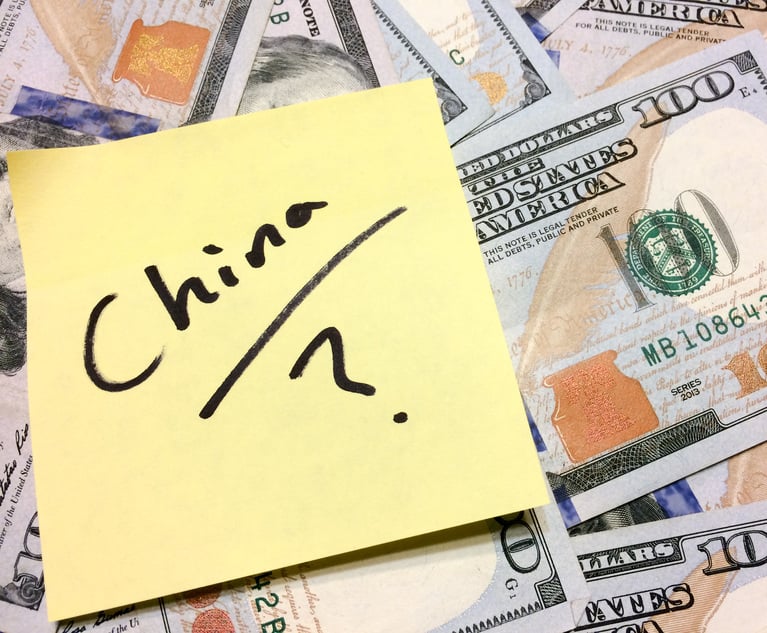“Gordon Gekko is alive and well and working in a major law firm.” So says Tony Williams, the founding member of law firm consultants Jomati and the former worldwide managing partner of Clifford Chance.
Icon of the 1987 Oliver Stone flick Wall Street, Gekko became both hero and villain to many millions for his oft-quoted ‘greed is good’ speech. And to Williams, the Gekko/Big Law overlap is stark.
In a piece for Law.com International, Williams spotlights the trend of ballooning associate salaries (which now top $200,000) against a backdrop of societal struggle, of climate change and deteriorating mental health, of COVID-19 and the insecurity it has wreaked upon so many. He talks about how even within firms pay disparities have seen staff treated differently depending on whether they are a “fee-earner” or – and I use this term deliberately to highlight sometimes dehumanising cultures within firms – a “non-fee-earner”.
So are we talking about…morality? Can law and morality even be part of the same discussion? After all, isn’t law about the dispassionate, impartial, politically (and morally) neutral representation of clients and their best interests?
Last year I spoke to a very experienced partner at an elite U.K. firm who, when asked how he felt morally about representing the government of a state known for its human rights abuses, said simply: “It’s not for me to say.” While another, when asked about a similar matter, said: “Our job is to act in the client’s best interests, and that’s what we’re doing.”
And the ongoing salary war suggests most firms are pretty happy with the current set up. So perhaps Williams is right, and that rapacious 1980s corporate ambition endures. And that ‘me first’ philosophy persists in areas other than just money. Today, worldwide vaccination programmes have brought into relief the realities of our planet’s egregious inequalities. Take for instance Germany, where earlier in June vaccination prioritisation was relaxed, meaning now any adult in several states can book themselves a jab.
But is it right that lawyers (and law firm employees) were given a head-start on jabs and added to one of the priority categories on the basis they work (apparently) in the service of justice? Some would argue, yes – justice is a pillar of any functioning democracy, and lawyers its custodians. Others (including many millions in Germany) feel differently.
It’s a controversy that matters little to elite firms like Clifford Chance, Noerr and Hengeller Mueller, which, as Germany correspondent James Carstensen writes, started administering vaccinations to their staff on-site several weeks ago, in some locations with the use of private doctors. There are even murmurings that other law firms are purchasing vaccines privately, effectively taking them out of public circulation.
Gekko-corporate greed is one thing, but it’s a culture that, as we now know, has an even slipperier side. Chris Niesche’s latest report describes how a former partner at a major New Zealand law firm was found guilty of misconduct after groping four interns at the firm’s Christmas party and engaging in sexual contact with another in a sauna at his home while his wife slept upstairs.
I ask this: Is law like any other selfish industry bent on nothing but its own gain? Can Gekko-esque attitudes and corporate social responsibility co-exist? Or must one (I wonder which) succumb to the other?
Perhaps the latest noises in ESG, politics and pro bono afford us a glimpse through the murk and to law’s beating heart.
For one, last week over twenty law firms including Slaughter and May, Clifford Chance, Herbert Smith Freehills and Shearman & Sterling founded a new alliance - Net Zero Lawyers’ Alliance – committed to accelerating the transition to net zero carbon emissions by 2050. Simon Lock has the story.
Similarly, Meganne Tillay wrote about how law firms including Freshfields Bruckhaus Deringer and Mishcon de Reya created a U.K. pledge to reduce the environmental impact of dispute resolution work.
In politics, lawyers in South Africa commended South Africa’s highest court for its ruling last week that found former president Jacob Zuma guilty of “egregious” and “aggravated” contempt of court and ordered him to serve 15 months in prison.
Talking to Africa correspondent Jennigay Coetzer, Fani Dingiswayo, a dispute resolution partner at Baker McKenzie in Johannesburg, remarked that if corporates recognize that they, too, must uphold the rule of law and continue to do the work of stamping out corruption in all its forms in the country, they will provide investors with certainty and clarity and can reap the benefits of their good governance through economic development and increased investor attention.
Perhaps then profit and good do co-exist, even if the balance is off. If you need further convincing, just take a look at our latest table which details the firms outside the U.S. performing best on pro bono. And look who tops it – Dechert. A firm that has attracted headlines lately for allegations of behaviour that one would describe as anything but moral. (Search Neil Gerrard for details, and note the case continues). But the challenge now is working to improve that profit/good balance.
Law is complex. You might even say it’s human.
Europe’s Rising Female Stars
Last week was big on news. But if there’s one piece I’d call a must-read (and also our best-read), it’s this: Anne Bagamery’s rundown of Europe’s best up-and-coming female lawyers; a veritable who’s-who of female lawyers any big firm will want to be aware of.
Around 100 high-quality submissions, which had already been filtered by all of the top law firms in Europe, were whittled down to find the 25 women aged under 40 who represent the best and brightest practising on the continental market, with candidates judged against a list of criteria that includes:
- the quality of their client base











